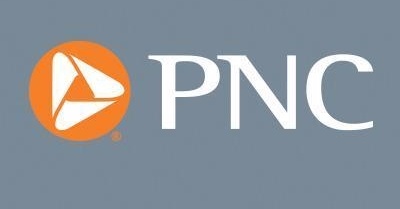
matching market expectations
- Consumer Prices (CPI) were up 8.3 percent in April 2022 in year-over-year terms (non-seasonally adjusted)
- Core CPI, excluding fuel and energy prices, was up 6.2 percent year-over-year for April 2022 (non-seasonally adjusted)
- Month-over-month CPI gains for consumer necessities continue to lead price increases for households
- Transportation CPI decreased on energy price easing, declining for the first time since the pandemic’s initial disruptions in early 2020
Gains in the Consumer Price Index (CPI) eased modestly in April 2022, posting an 8.3 percent increase versus one year ago. This result met median estimates of a 0.3 percent monthly increase on a seasonally adjusted basis, down sharply from March’s topline 1.2 percent gain that accounted for that month’s spike in energy prices. Price hikes resulting from the spike in energy prices induced by Russia’s invasion of Ukraine remain entrenched, however. Gasoline prices remained up 43.6 percent year-over-year, despite dropping by 6.1 percent from March 2022 into April. Topline CPI growth remains at its fastest pace since 1982’s descent from hyperinflationary highs, with the all-time peak then having reached 14.6 percent (April 1980). Although the pace of price growth may be at or past its peak, the likelihood of an outright retreat in prices from current highs is virtually nil. The Federal Reserve has signaled that it is all-in on fighting inflation but calming year-over-year growth from its current 8-percent range to something closer to the Fed’s 2-percent target will be an effort that stretches into 2023.
Core CPI re-accelerated in April 2022, gaining 0.6 percent for the month and nearing some of the strongest numbers seen in the second half of 2021 as structural inflation concerns were just taking flight. Without the decline in gasoline prices to temper growth, as it is excluded from the Core CPI measure by design along with other volatile food & energy components, the pressure on household budgets remains clearly evident. The strongest CPI component index gains for April 2022 were all in consumer necessity categories. Housing was up by 0.6 percent (vs. 0.7 percent in March 2022), Food & Beverages increased by 0.8 percent (vs. 1.0 percent in March 2022), and Medical Care also saw a second consecutive month of strong monthly price gains at 0.4 percent (vs. 0.5 percent in March 2022). Apparel prices did decline for the first time since September 2021 (-0.8 percent). But at less than 3 percent of the total index representing a household’s typical basket of monthly expenditures, this offset will provide little relief on the aggregate.
Recreation CPI inflation ticked higher for April 2022, in what is likely to be the start of a trend as the summer months approach and consumers look to shift spending from goods to services. The 0.4 percent gain in Recreation CPI for April 2022 translates to a 4.3 percent year-over-year increase, down slightly from March’s 4.8 percent rise. The results for this component index were volatile through the second half of 2021 and to start the new year as concerns over COVID-19 variants persisted. The all-clear may not yet have been signaled regarding the virus’ impact on the U.S. economy, but all indications are that consumers are willing and able to resume in-person spending trends this year, adding upward pressure to Recreation prices that are already rising on continuing labor supply issues and supply chain disruptions.
Consumer spending habits are adjusting to persistent inflation – and in a way that bodes ill for the U.S. economy over the coming 12-18 months. Consumer spending in March 2022 using revolving credit lines, including credit cards, spiked to its 3rd strongest pace since 1980, accompanying that month’s peak inflation rate (thus far). Although wage gains remain stronger than their pre-pandemic norms – and, indeed, as compared to even longer-term trends, they are not keeping up with the pace of inflation which, again, is being driven in significant part by household necessities. To bridge this gap, it appears that consumers are taking on debt in order to maintain current standards of living. With the Federal Reserve showing full resolve in fighting inflation by raising interest rates, consumers will not only be paying more through accumulated debt now, but they will be paying more later when those bills fall victim to rising credit card interest rates.
In order to fight inflationary pressures, PNC has the Federal Reserve raising interest rates by 50 basis points in both the June and July meetings. Even if the worst effects of energy prices are passed, there is enough price growth in key household categories and consumer spending momentum to force the Federal Reserve’s response to inflation to remain on track throughout the second half of 2022. The potential for one or more 75 basis point hikes was quashed by Fed Chair Jerome Powell in comments after the May FOMC meeting. But all other public comments have so far reinforced that it is full speed ahead (at 50 bps per meeting) for both the Fed Funds rate and Quantitative Tightening with the Fed shrinking its balance sheet and thus pressuring long-term rates higher. Inflation will remain elevated throughout the next 12 months, but not for lack of effort on the Fed’s part.
The PNC Financial Services Group, Inc. is one of the largest diversified financial services institutions in the United States, organized around its customers and communities for strong relationships and local delivery of retail and business banking including a full range of lending products; specialized services for corporations and government entities, including corporate banking, real estate finance and asset-based lending; wealth management and asset management. For information about PNC, visit www.pnc.com.













